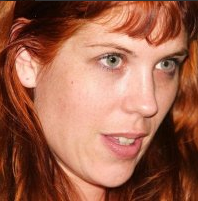The challenges of reporting on Myanmar
In this interview with Mumbrella Asia editor Robin Hicks, Melbourne-born journalist Jessica Mudditt talks about the challenges of reporting on a country that is – in fits and starts – loosening its grip on press freedom after decades of oppression.
What’s the hardest thing about reporting on Myanmar?
For me, it’s the lack of data available. Previous military regimes appear to have had zero interest in obtaining information about the people of Myanmar (other than for intelligence purposes!). A census hasn’t been conducted in more than 30 years, so even something as straightforward as the total population of Myanmar is merely an estimate, and the estimates vary quite a lot from organisation to organisation. And because Myanmar was a closed country for so long, the research that would normally have been amassed by civil society groups such as INGOs simply didn’t exist until recently. This makes it difficult to identify trends and changes in society, which is what makes an article or an angle robust. For example, when I wrote about women working in the “grey area” of the commercial sex industry, such as at massage parlours and karaoke lounges, there simply wasn’t any data available about the number of women engaged in such work.



Journalists interviewing journalists should be banned.
Thank you for writing this article Jessica and highlighting pertinent information relating to Myanmar’s views on journalism.
I am of Burmese descent, born to Burmese parents in Australia and have been six times since 2002. With each month long stay, I have witnessed and been privy to many changing circumstances and long-held beliefs that stem from deliberate deprivation of education and\or censorship of information.
As a freelance writer myself, I am intending to spend a few months next year if not longer living with family and working on a book I am writing based on the culture and history of my heritage. I’m also a photographer, so that too throws up an interesting set of challenges when trying to shoot in public places!
I’m glad people like yourself are devoted to reporting and producing information from inside Myanmar, it is a critical step in the right direction.